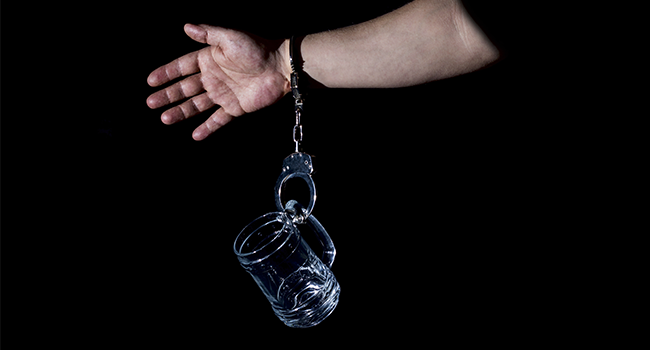Alcohol – the most popular and widely accepted recreational drug in the 21st century. The manufacture and sales of wines, spirits and beers is a $300 billion industry. No wonder governments are in no rush to outlaw it and effectively curb their own taxed income. Should they, though?
As one of the oldest recreational drugs in human history, alcohol is not strictly bad for you. As with most things, if consumed in moderation and care, they have proven to reduce the risk of heart disease and stroke. We know that humanity first started consuming alcohol around 8000 B.C., which coincides with the birth of agriculture. Alcohol does occur naturally, but can not be harvested in large quantities and would take more effort and time than to grow the ingredients and ferment or distil them ourselves, in carefully regulated environments ensuring the best yield and quality.
Why does a substance that many ancient civilizations considered to be a gift from the gods and treated with respect and reverie, has been killing over four million people a year?
Instant Gratification
We live in a time when all it takes to get a drink is to visit your local grocery store. Age of instant gratification. There are even alcohol delivery options available in some cities! Too much of a good thing can be extremely detrimental, especially if said thing helps us be less shy around opposite sex, make us feel more charismatic and overall have more fun. Until your liver gives out and you die a slow and painful death.
Ancient Babylonians did not have access to alcohol the same way we do. It took skilled craftsmen a long time to gather the ingredients, prepare the tools and apparatus required to produce it and even longer time and effort to distribute it to people nearby. An average Babylonian never even tried alcohol, it was so exclusive and expensive that only the brewmaster himself and his closest friends and family got to enjoy this elixir.
You, however, just need to open a fridge and you have a cold beer in your hand. Modern logistics and industrialization have allowed alcohol to become the widespread phenomenon it is today. And with it, comparably cheap prices and ease of access.
Choices.
Human beings parse information and make decisions and choices on a daily basis. Using their prefrontal lobe of their brain they decide if it would be a good idea to approach a desirable mate or pick a fight with a person much less desirable. Introduce alcohol to that process and these decisions seem much more straight forward and easier to make. Alcohol is mostly consumed due to its inhibition and inner barrier removal properties. A few drinks in you suddenly have no issues with doing that karaoke song in front of all those strangers, it is just singing after all. Embarrassing yourself in front of a crowd is least of your worries while drunk, most often it can make the user aggressive and brave. Sadly, alcohol and bravery do not go well together, as it also impairs not only judgment of the user but also his motor skills, equilibrium, and vision.
Alcohol is infamous for being the source of poor decisions. The more alcohol is consumed the worse it gets. Sadly, alcohol is also a highly addictive substance and millions of people die of alcoholism and its corresponding symptoms every year.
Alcohol hyperstimulates the midbrain of its user. It draws most of the blood that would usually be distributed evenly. It handicaps the prefrontal lobe, the center of decisions, values, and critical thinking. Decisions are made based purely on instant gratification, once dear values are discarded and ability to rational thinking slowly dims. The longer a user is abusing alcohol, the more intense these drawbacks become and more time is required for the human brain to stabilize its own natural chemistry.
The so-called high-functioning alcoholics, while being addicted to the substance can still maintain relationships and keep their job. They are a rare kind of alcoholic. While being more able than most, they still put their own health at risk of liver scarring or cirrhosis, stroke and respiratory arrest.
Those who are not so strong succumb to a downward spiral of unfortunate and self-impaired results. Loss of care for friends and family, inability to hold meaningful relationships, inability to maintain a job and in extreme cases total disregard for one’s own hygiene and well-being.
Alcohol affects our choices. There is no way around it. The very first and most important choice is whether or not to use it at all. Its potential small dose benefits are not worth the potential life threatening addiction. For long lasting alcoholics a rehabilitation course of carefully monitored detoxification procedures is required to regain any semblance of their life and their ability to make significant decisions.
Latest posts by Darren Lockie (see all)
- Cocaine burnout - February 25, 2020
- What is pathological lying? - February 21, 2020
- Ireland’s growing drug problem - January 20, 2020
+66 8 7140 7788










